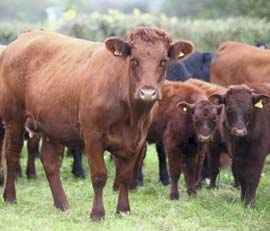Opposition mounts to meat control costs

Rural organisations have joined forces to condemn plans by the Food Standards Agency that would more than double the cost of meat inspections.
Plans to pass back the full costs of official inspections in meat plants will be discussed by agency officials on Wednesday (25 May).
The agency pays £32m a year towards the cost of meat inspections which it claims is effectively a subsidy that should be abolished.
But rural organisations say it is unfair the agency can decide the cost of inspections and pass it on to the industry in its entirety.
Eight farming and countryside organisations are demanding an end to the FSA’s monopoly of meat inspection controls.
They include the Country Land and Business Association, the NFU and the National Federation of Meat and Food Traders.
They say passing on the cost of inspections will render the meat sector uncompetitive and threaten the viability of British livestock farming.
Conservation bodies supporting the industry view include the Campaign to Protect Rural England and the National Trust which say grazing animals play a big part in landscape and environmental management.
A letter from the eight organisations calls for meat inspection to be overhauled so they are effective, efficient and affordable across the whole abattoir sector.
Full cost recovery must not be imposed, says the letter, which was published in The Times on Tuesday (23 May).
The letter said: “The FSA proposal is ill-considered and will cause irreparable damage to the meat and livestock industry and consequently to the food economy, employment, consumer choice, future food security, landscape and the environment.
“Charging the full cost of inspections should be revisited once they are “risk-based and affordable and that currently they are neither and would lead to the closure of large and small abattoirs “
This is not the first time that a threat to small, local abattoirs has brought together a wide cross-section of organisations.
Some 200 organisations successfully challenged similar moves a decade ago.
Their lobbying persuaded the government to ditch plans for charging all costs of meat inspections to the industry and adopt a fairer European system.
The campaign is credited with ensuring that smaller abattoirs – which slaughter half the country’s cattle and sheep – remained viable.
Suffolk food campaigner Caroline Cranbrook said: “Many were saved and today they are key to the production of local foods.
Abattoirs were a vital link in the supply chain that meant people could buy meat from locally reared animals processed with the least possible stress.
These livestock were an essential part of the infrastructure that maintained the landscape, environment and grassland biodiversity, said Lady Cranbrook.
“It is no exaggeration to say that these abattoirs are the lynchpin of the countryside.”
